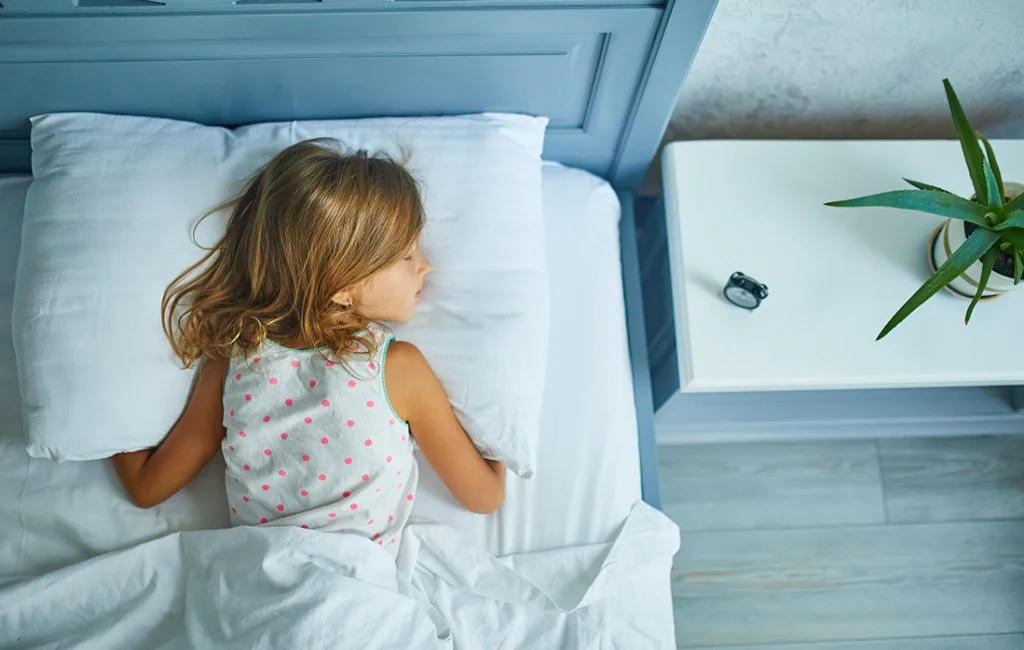
Most kids have a habit of waking up at the crack of dawn, whether their parents like it or not, but as inconvenient as this can be, kids might actually be on to something. A recent study published in the Journal of Sleep Research found that bright light exposure early in the morning can lead to faster sleep onset at night. (1)
Up to 1 in 4 kids reportedly have trouble falling asleep, which can be frustrating for parents hoping to relax in the evenings but is also detrimental to kids’ health, leaving them tired, moody, and unable to focus during the day. (2) So, if your kids wake up earlier than you would like and have trouble settling down at night, getting them out in the sunlight can help solve both problems.
The Study
The research, conducted on 247 Dutch 11 to 13-year-old Dutch children, explores how light exposure impacts children’s sleep quality. Researchers tracked the children’s rest and activity levels, sleep, and light exposure over the entire day and night for a week. They found the timing and duration of bright light exposure throughout the day significantly influence how quickly and how long kids sleep. Particularly, more time spent in bright light from morning until bedtime meant shorter sleep duration and faster sleep onset.
On the other hand, more intense light at night is linked to decreased sleep duration and a longer time to fall asleep, suggesting that light exposure before tucking in at night can negatively impact sleep quality.
The research indicates that changing the timing, duration, and intensity of light exposure can also affect sleep quality — for better or worse. Adjusting how and when your child is exposed to bright light can make bedtime smoother and sleep more efficient.
Importance of Natural Light Patterns
Aligning daily routines with natural light patterns, which means more exposure to light during the morning and day and less light in the evening and night, could increase the amount and quality of sleep kids get.
“Exposure to light in the morning can help synchronize our internal biological rhythms or circadian rhythms to the cycle of the day, which is critical for children, whose developing bodies make them especially susceptible to poor sleep,” explains Dr. Kevin Huffman, D.O., CEO of On the Rocks Climbing Gym, which works with children and community members to encourage healthy habits.
Dr. Minal Patel, a board-certified pediatrician specializing in sleep medicine at Pediatrix Medical Group in Austin, Texas, explains that light exposure affects the circadian system (the timing of the sleep-wake cycle) and, consequently, sleep quality as well as melatonin production. “Bright light exposure early in the morning shuts down the production of melatonin from the brain in the morning, promotes alertness, and causes advance release of melatonin from the body at night, causing quicker sleep onset,” she says. These effects mean that kids will be more sharp and focused in the mornings when it’s essential for school, socializing, and play, and will be better able to wind down for a great sleep in the evening.
The study results support the theory that exposure to light in the morning and during the day and avoiding bright light exposure at night and before bedtime are vital for a healthy sleep cycle and daily life, according to Dr. Patel. “Lack of alignment to light exposure can affect sleep quality and quantity, which can affect mental health, physical health, and academic performance,” she says.
Along those lines, Dr. Huffman says insufficient light exposure, especially in the morning, can impair the circadian rhythm and, in turn, result in problems falling asleep at night, mood problems, behavioral difficulties, and deficits in cognitive function in children, according to mounting evidence.
Importance of Sleep for Healthy Kids
Healthy sleep habits in childhood are crucial for long-term health outcomes. Unfortunately, data shows that only around 48 percent of school-aged children meet the recommended nine hours of sleep on weekdays. This issue needs attention because sleep plays an essential role in growth and cognitive development, with growth hormones secreted during sleep periods. Inadequate sleep can mean less of these hormones are secreted, which, with ongoing sleep deprivation, can contribute to hindered growth and physical development over time.
Getting too little sleep has been linked to a higher chance of feeling anxious, having attention deficit hyperactivity disorder (ADHD), and experiencing emotional and psychological issues that can limit activities.
What’s more, some research suggests children who experience poor sleep quality may face an increased risk of cardiovascular issues in adulthood, are more likely to have poor mental and physical health, and have a higher likelihood of experiencing adverse events in their lives.
How to Support Your Child’s Natural Rhythms
Practical steps from the study’s findings include encouraging outdoor activities during daylight hours and ensuring a dark sleeping environment to support better sleep quality.
Dr. Huffman recommends that parents encourage children to get outside in the morning and be exposed to natural light, especially in the backyard, on a walk, or by a window with the curtains open. He says it’s also necessary to ensure your child’s bedroom is dark and quiet at night so they are using natural sleep pressure for bedtime. “Get morning light and protect night-time dark,” he says.
Dr. Patel says that parents can support this process by following simple sleep hygiene rules, such as avoiding exposure to bright light in the morning and blue and bright lights and electronics before bedtime. “Enforcement of regular sleep schedules is essential for an excellent-quality sleep cycle,” she adds.
While supplements such as melatonin are popular amongst parents who are desperate to help their kids fall asleep faster, this practice isn’t necessarily the best idea. The American Academy of Pediatrics recommends consulting your doctor directly about their position on using melatonin supplements. In general, though the AAP advises against depending on melatonin to resolve chronic sleep issues, it recognizes that establishing a regular, healthy bedtime and sleep routine requires significant effort.
Research has shown that proper nutrition and exercise can make a big difference in kids’ sleep quality, as can mindfulness and meditation, so focusing on the basics of health while increasing ideal light exposure times is key. While parenting changes throughout a child’s development, the pillars of health remain constant. “We should always encourage children to drink water, sleep well, move daily, and be exposed to natural light and a restful sleep environment,” says Dr. Huffman.
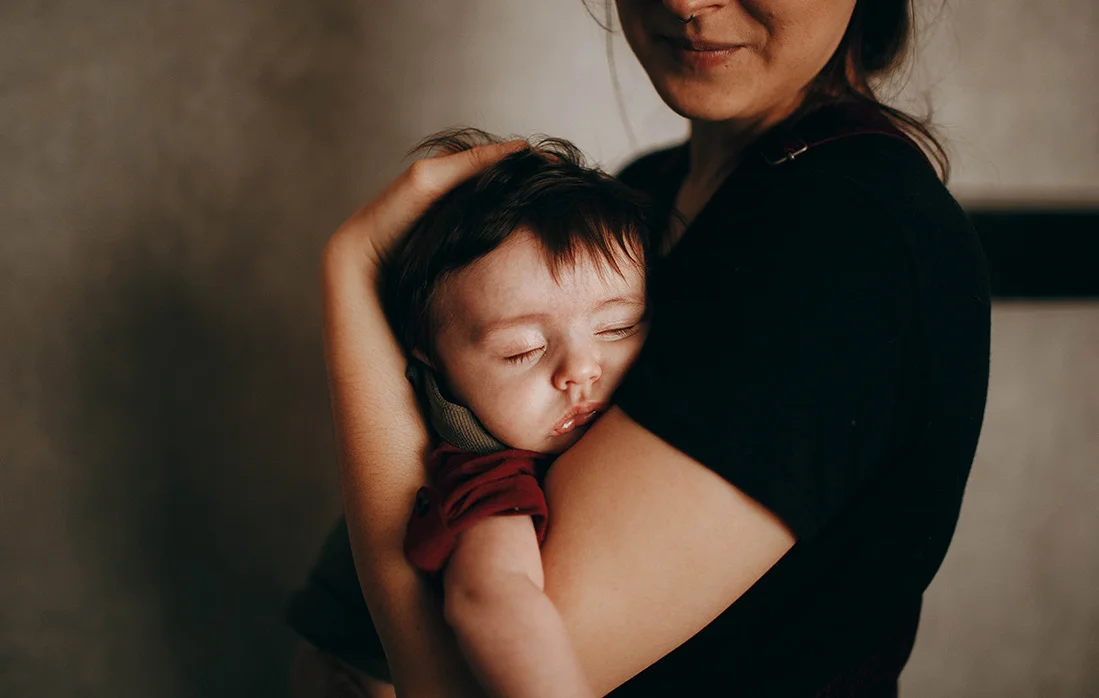
A Comprehensive Guide To Babies And Sleep
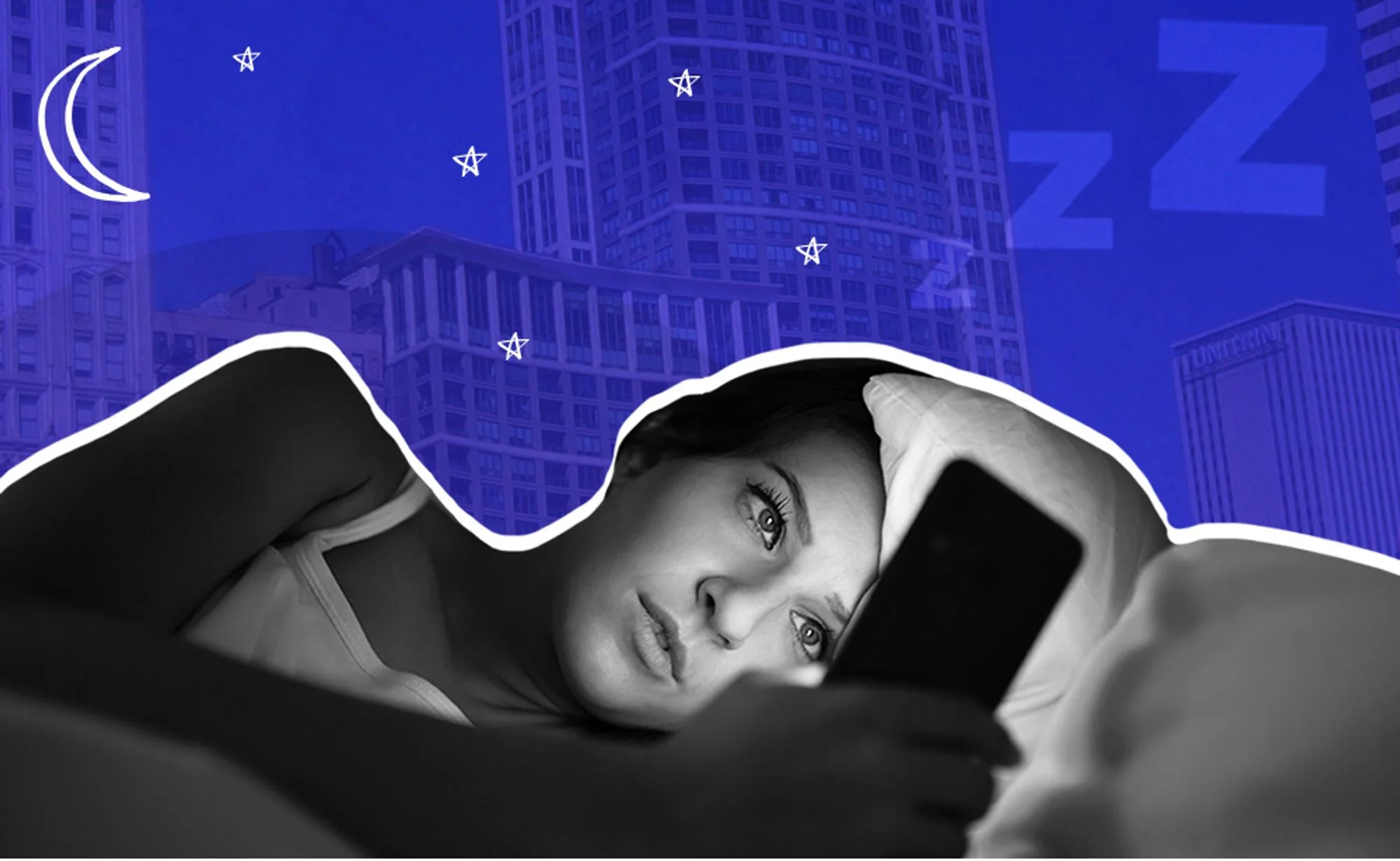
Exclusive Survey Reveals Double Whammy Driving Millennials’ Sleep Issues: Social Media and Mental Health
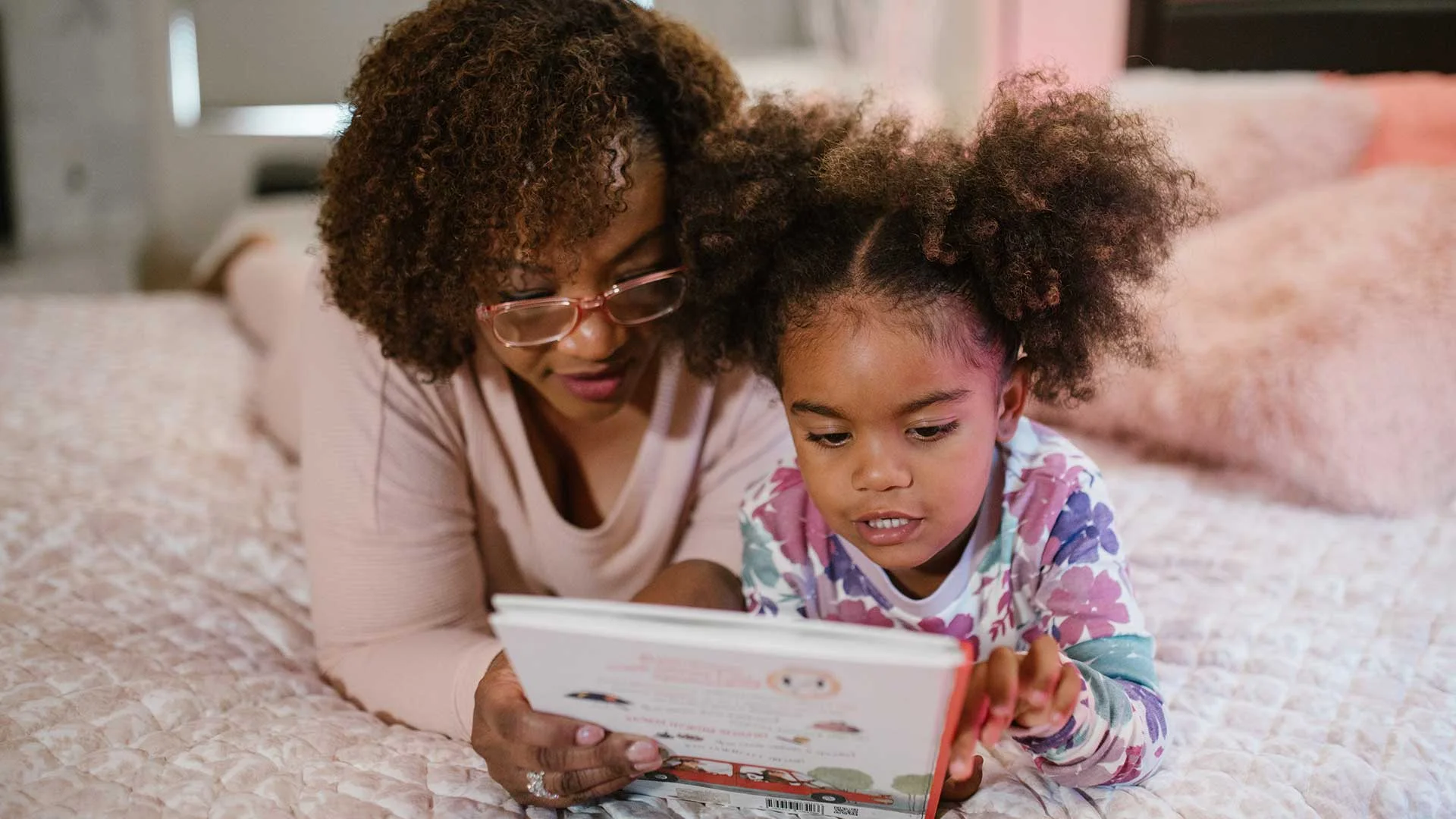
A Parent’s Guide to Melatonin for Kids
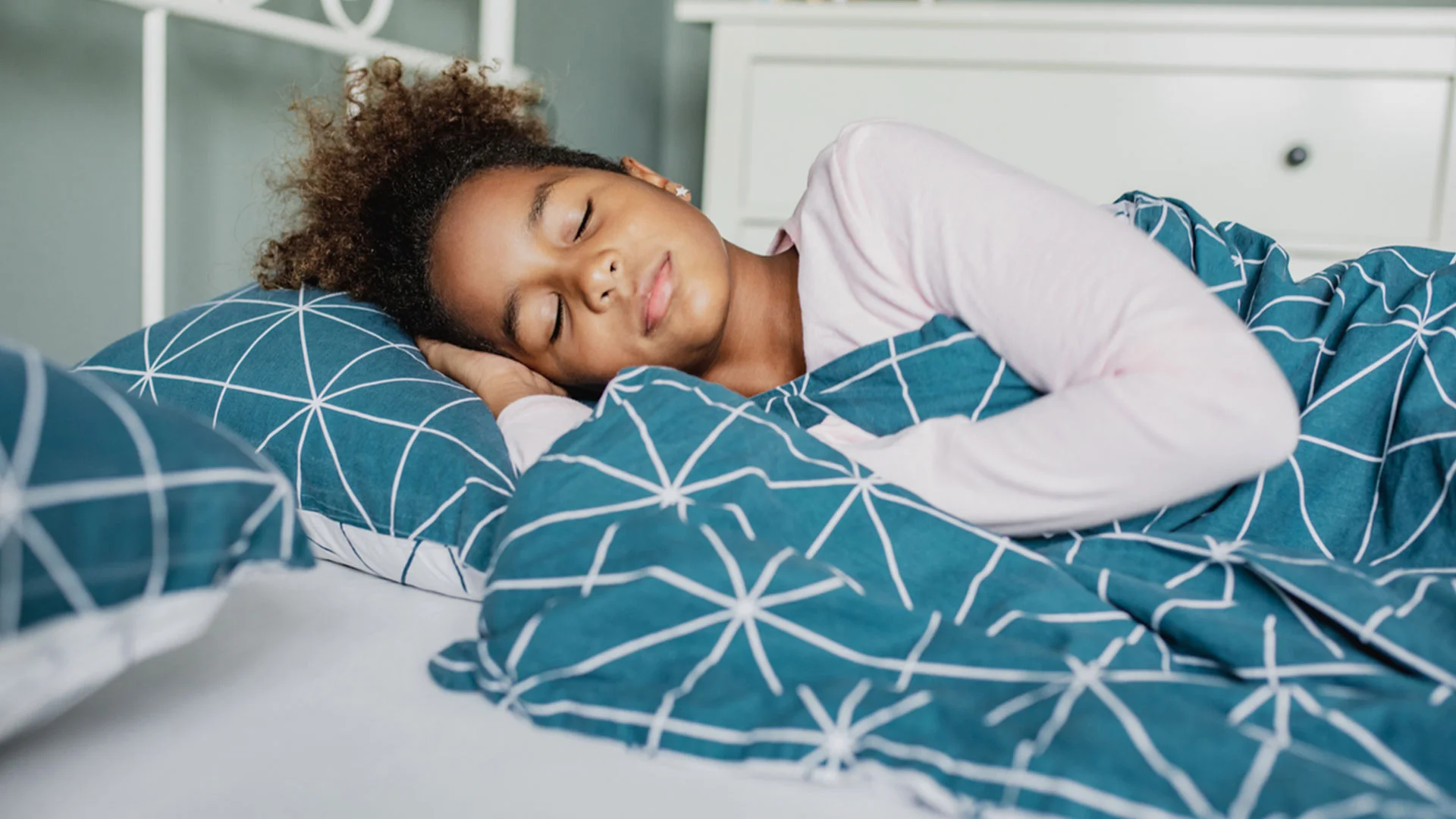
Getting Your Kids To Sleep At Any Age
Sources
1. Stefanopoulou, M., Ruhé, N., Portengen, L., van Wel, L., Vrijkotte, T. G. M., Vermeulen, R., & Huss, A. (2024). Associations of light exposure patterns with sleep among Dutch children: The ABCD cohort study. Journal of Sleep Research, e14184. https://doi.org/10.1111/jsr.14184
2. Whalen, Ivey; “Thinking about melatonin to help kids sleep? Ask your pediatrician,” AAP News; https://publications.aap.org/aapnews/news/16325/Thinking-about-melatonin-to-help-kids-sleep-Ask?autologincheck=redirected; July 1, 2021.
Huffman, Kevin. Author interview. March 2024.
Patel, Minal. Author interview. March 2024.


























